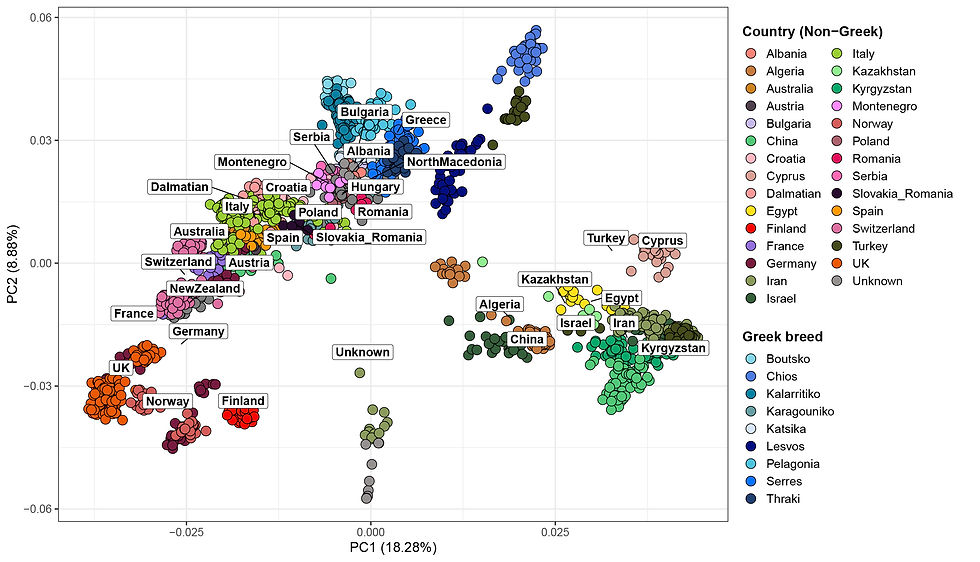Publication of our project results in the Open Access scientific journal “BIOLOGY”
- designaturegr
.png/v1/fill/w_320,h_320/file.jpg)
- Jul 11, 2025
- 2 min read
Title of the article: “Genetic Diversity, Population Structure, and Historical Gene Flow Patterns of Nine Indigenous Greek Sheep Breeds” https://www.mdpi.com/2079-7737/14/7/845
In this study, we present the first large-scale evaluation of the genetic resources of nine indigenous Greek sheep breeds. As genetic erosion threatens many indigenous breeds, the incorporation of genetic tools into animal breeding, genetic improvement, and breed conservation programs can contribute towards conserving biodiversity. In our work, we found that Greek breeds maintain adequate levels of genetic diversity, without signs of excessive inbreeding. Chios exhibited the lowest within-breed genetic diversity levels and was the most differentiated breed. Following Chios, the Lesvos breed was also found to be genetically differentiated from the rest of the mainland breeds. Moreover, we revealed the genetic proximity between the Serres and Karagouniko breeds, mostly attributed to management practices. In addition, the genetic similarity between the Boutsko and Kalarritiko breeds was confirmed. Furthermore, with our work, we provide novel insights into the westward migration waves of sheep, which, for the first time, involved the Greek territory. We revealed the genetic introgression of Greek insular breeds with breeds from Anatolia and the transfer of genetic material from breeds of Eastern Europe to lowland Greek sheep breeds. Our results support the application of genomic approaches for understanding the population genetic structure, assessing inbreeding levels, and monitoring crossbreeding practices within sheep flocks. In addition, our findings contribute towards the proper design of reproductive breeding schemes by offering valuable insights into genetic improvement and reproduction management; through the genetic characterization and selection of individuals, such efforts can be designed to also minimize the loss of genetic diversity. Ultimately, these approaches will increase adaptability to environmental changes and reduce susceptibility to diseases, while also promoting the long-term viability of each breed. Our work forms the basis on which effective genetic improvement and selection schemes can operate in Greece, enabling the production of breeding stock or animal genotypes with desired traits.





Comments